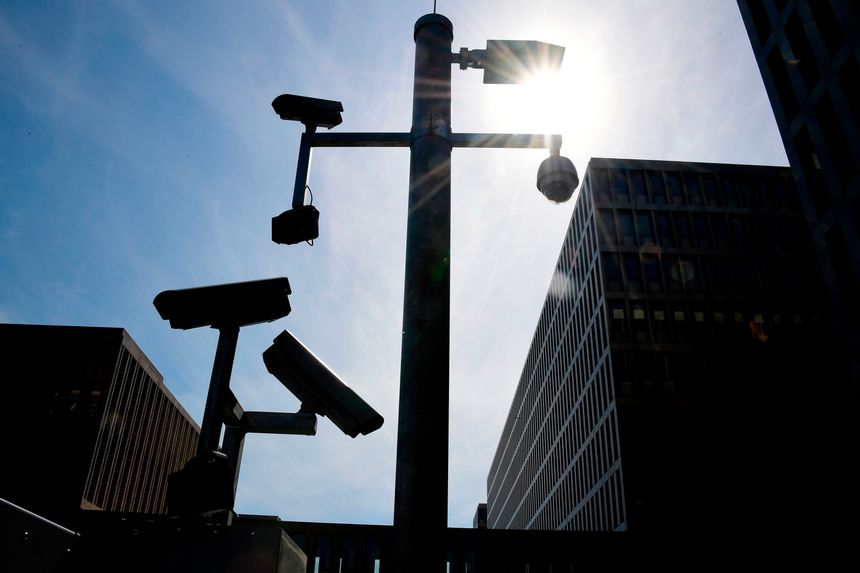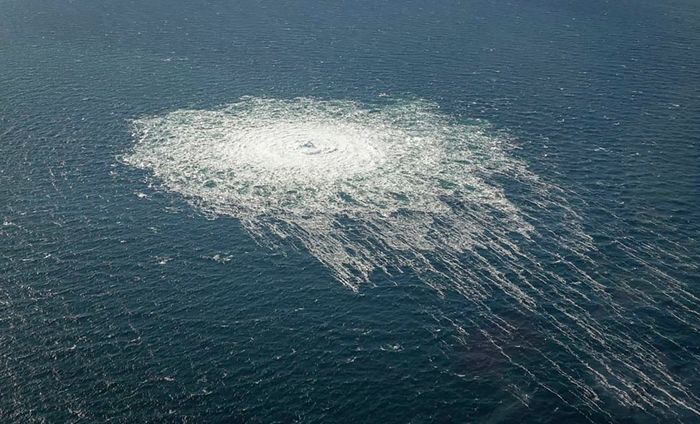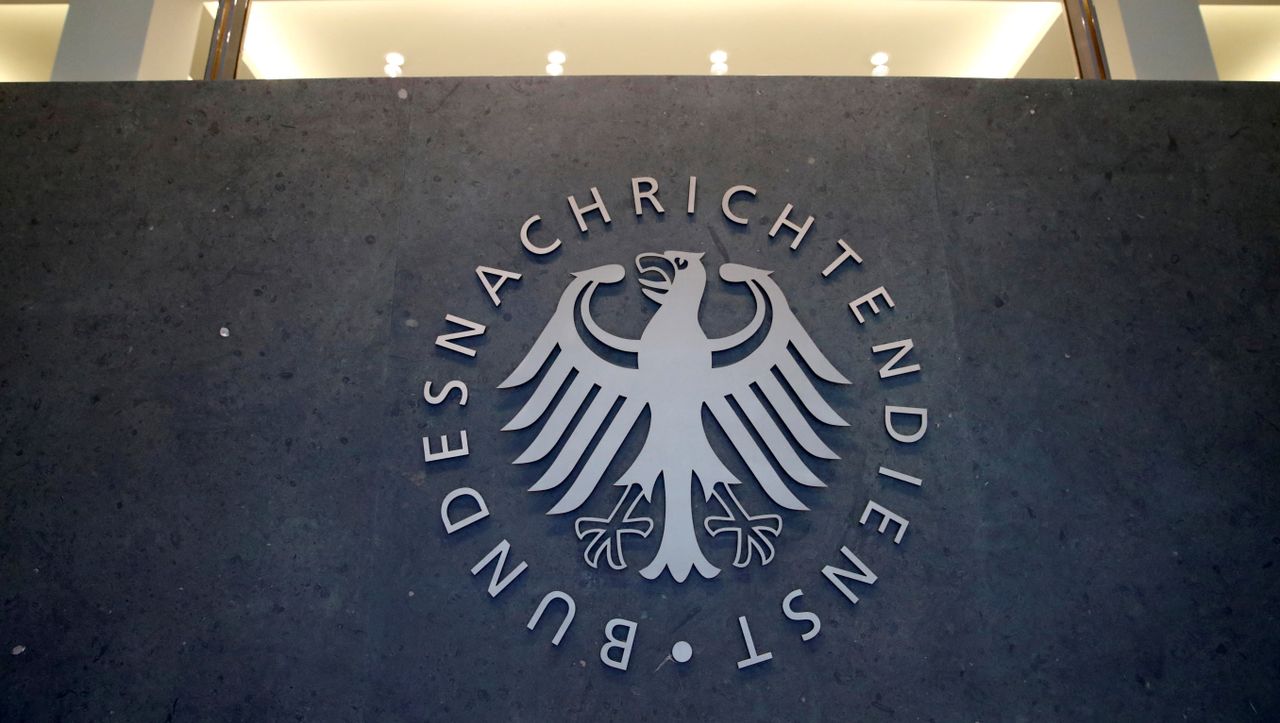Menee huomiselle. Kiitos jakamisestaKatso äänien kanssa kelaamatta jälkimmäinen puolisko.
Install the app
How to install the app on iOS
Follow along with the video below to see how to install our site as a web app on your home screen.
Note: This feature may not be available in some browsers.
You are using an out of date browser. It may not display this or other websites correctly.
You should upgrade or use an alternative browser.
You should upgrade or use an alternative browser.
Ukrainan konflikti/sota
Muutamassa Bakhmut videossa vilahtanut (ihastuttava) "Noita" kertoo hiukan Bakhmutin historiasta. Yllättäen jo Pietari "Suuri" joukkomurhasi kaikki kaupungin asukkaat suolakaivosten takia.
Black Bart
Luutnantti
Pakko myöntää, että jollain tasolla toivoisin tämän toteutuvan. Nähtäisiin viimein löytyykö ne rautasaappaat vielä jostain komeron nurkasta, vai jatkuisiko tuo ryssän edessä matelu edelleen.
Antares
Respected Leader
Tämä on voinut olla täällä aikaisemmin, koska julkaistu eilen:
Prigozhin väitetysti jossain "etulinjan asemissa" kiertämässä. Olihan väitetysti Bakhmutin suunnalla samaan aikaan kun Zelensky kävi Bakhmutissa.
Pistää taas miettimään mitä peliä hän pelaa. En usko että pyrkisi syrjäyttämään Putinia, enkä usko Kadyrovistakaan sitä. Kumpikin on Putinin tuotoksia ja nykyisessä asemassa ainoastaan siitä syystä.
Sen sijaan voin uskoa että hakee "parempia asemia" silovikkien / oligarkkien keskuudessa. Wagnerin sodanjohdolle esittämät haukut (joissa valitettiin kranaattipulaa) olivat myös varmasti Prigozhinin hyväksymät, vaikka valituksen aihe olisikin oikea.
Prigozhin väitetysti jossain "etulinjan asemissa" kiertämässä. Olihan väitetysti Bakhmutin suunnalla samaan aikaan kun Zelensky kävi Bakhmutissa.
Pistää taas miettimään mitä peliä hän pelaa. En usko että pyrkisi syrjäyttämään Putinia, enkä usko Kadyrovistakaan sitä. Kumpikin on Putinin tuotoksia ja nykyisessä asemassa ainoastaan siitä syystä.
Sen sijaan voin uskoa että hakee "parempia asemia" silovikkien / oligarkkien keskuudessa. Wagnerin sodanjohdolle esittämät haukut (joissa valitettiin kranaattipulaa) olivat myös varmasti Prigozhinin hyväksymät, vaikka valituksen aihe olisikin oikea.
LockOfTheNorth
Korpraali
Ei mässäillä gorella yms., mutta minulle tuo on yksi surullisimpia videoita, mitä olen sodasta nähnyt. Karussa maastossa kaveri menee auttamaan toista ja kuolee itsekin siihen paikkaan hiljalleen. Esimerkiksi aftermatheja, drone- ja lämpökameravideoita on helppo katsoa. Toki on pakko sanoa, että juuri ukrainalaisten ollessa tässä kyseessä, tämä koskettaa. Vahvaa samaistumispintaa koen heitä kohtaa. Jos nämä olisivat olleet venäläisiä, olisi tilanne rehellisesti sanottuna aivan toinen.Vedin tämän pikakelauksella. Ei ollut mitenkään raaka tai sitten meni kohtaukset ohi.
Itse varmaankin "kaiken nähneenä" koen, että tuo on ehkä lähin keino saada jonkinlainen immersio, mitä tuo tuolla on. Ilman musiikkia, ilman editointeja.
EDIT: Sen verran lisäisin vielä, että henkilökohtaisesti olen tietoisesti pitänyt itseni "vastuussa" siitä, että katson myös ne järkyttävimmät videot ja kuvat. Joku voi pitää tätä outona, mutta kun meidänkin puolesta tuolla nyt tapellaan pahuutta vastaan, on se vähintä, mitä voi tehdä.
Viimeksi muokattu:
Hieman sellanen olo et tietyillä kanavilla on hieman lähteny mopo keuliin Kreminnan kanssa, ryssät ei oo tuolta vapaaehtosesti poistumassa ja oma perstuntuma on että uket ei oo tonne suoraan hyökkäämässä ennenkun saavat Zhytlivkan (ja mielellään ainakin osa Kreminnan itäpuolella olevasta mettäalueesta) haltuunsa. Tähän liittyen v_stus kehotti myös laittaan hieman jäitä housuin näitten huhujen kanssa:
"Ladies and gentlemen, it's enough to spread "good news on Kreminnaya". Everything is really difficult there, intense fighting on both sides does not subside. It's too early to say anything at all. The Armed Forces will still liberate the city, but not tomorrow or the day after tomorrow. We have to wait."
Samaa mieltä.
Lisää kommentteja tilanteesta.
turska
Kenraali
WSJ:stä: https://www.wsj.com/articles/suspec...rn-intelligence-about-ukraine-war-11672255183
Suspected Russian Agent in Germany Had Access to Western Intelligence About Ukraine War
U.S., U.K. investigate whether signals intelligence officer shared material with Moscow, officials say

A suspected spy for Russia worked for Germany’s Federal Intelligence Service, a sprawling agency based in Berlin.
PHOTO: TOBIAS SCHWARZ/AGENCE FRANCE-PRESSE/GETTY IMAGES
By
Bojan PancevskiFollow
Updated Dec. 28, 2022 2:47 pm ET
TEXT
Listen to article
Length(7 minutes)
BERLIN—A senior German intelligence officer arrested on suspicion of spying for Russia had access to a trove of highly sensitive, top-secret information about the war in Ukraine as well as knowledge of how it was collected by the U.S. and its allies, Western officials say.
Prosecutors are trying to determine whether the material was shared with Moscow. If so, it could have alerted Russia to its own vulnerabilities and given away Western intelligence-gathering methods and capabilities.
American and British officials said they were trying to determine the scope of potential damage in Ukraine and elsewhere. One U.S. official said there was “grave concern” about the case.
The suspected spy, identified as Carsten L. by German prosecutors, worked for the signals intelligence branch of the country’s Federal Intelligence Service, which conducts electronic surveillance and works with the U.S. National Security Agency and Britain’s Government Communications Headquarters.
Prosecutors said the man was being held on suspicion of committing treason as their investigation continues.
The German intelligence service, known as the BND, confirmed the arrest but has declined to comment further, citing national security risks. The NSA and GCHQ declined to comment.
Neither the Kremlin nor Russia’s Foreign Intelligence Service, the SVR, immediately responded to requests for comment.
Germany isn’t a member of the so-called Five Eyes intelligence community made up of the U.S., Canada, the U.K., Australia and New Zealand, but Berlin does receive sensitive information from those countries, especially in relation to the war in Ukraine, officials from three countries said.
Carsten L. had worked on intelligence related to Russia’s war in Ukraine, including material gathered by German military satellites, German officials said.
His department also processed classified intelligence from Russia and Ukraine obtained by other Western spy agencies by tapping electronic devices, intercepting telecommunications and satellite imagery.
The BND, which has a staff of 6,500 and is based in a highly protected campus in the center of Berlin, has been focusing its intelligence-gathering and analysis on Russia and Ukraine since the start of the war, and is traditionally also active in the Balkans, the Middle East and Africa.

German officials suspect Russia is behind a railroad attack in October that temporarily knocked out all rail traffic in the country’s north.
PHOTO: BODO MARKS/ASSOCIATED PRESS
The Kremlin’s suspected penetration of Germany’s most secretive security agency is the latest evidence of Moscow’s aggressive tactics in Europe, where Russia has been accused of killing political opponents, sabotaging infrastructure and trying to steal industrial secrets.
The BND received a tipoff about the suspected spy from an allied intelligence service earlier this year, German officials said. After an internal investigation, the case was passed to the federal prosecutor, who then ordered the man’s arrest last week.
The case could be the worst example of Russian penetration of Germany’s intelligence services since 1961, when a senior BND employee who was spying for the Soviet Union exposed a network of 100 CIA spies, said Erich Schmidt-Eenboom, who has written several books on the BND.
Roderich Kiesewetter, an opposition lawmaker and deputy chairman of the parliamentary oversight panel that oversees Germany’s intelligence agencies, said the case could be a potentially severe blow to European security.
He has called for Germany to set up a commission of inquiry to explore how many politicians and senior civil servants might have been compromised by Russia and China and look at how to reduce Germany’s dependence on both countries.
Germany scaled down counterespionage efforts in the early 2000s, becoming vulnerable to Russian operations, according to Mr. Kiesewetter and other experts.
However, senior German intelligence officials said the Ukraine war had marked a “paradigm shift” in German politics.
Berlin started cracking down on Russian espionage this year after Moscow attacked Ukraine. The heads of Europe’s domestic securities agencies met in early April in Paris to forge a common strategy on fighting Russian espionage. After the meeting, European governments expelled around 600 Russian officials from their countries, including 40 by Germany.
The decision was “the most significant strategic blow against the Russian intelligence services in recent European history,” Ken McCallum, the head of Britain’s MI5 agency, said in November.
Russia has since sought to offset the loss by activating so-called deep cover agents, and using informal collaborators as well as recruiting civil servants, business people, academics and others as spies, according to several Western officials.

German officials think Russia was to blame for the destruction of the Nord Stream natural gas pipelines.
PHOTO: DANISH DEFENCE/ZUMA PRESS
The probe into Carsten L. hasn’t found evidence that he had received payments from his handlers. Investigators are trying to determine whether he was blackmailed or whether he was motivated by ideological convictions, people familiar with the probe said.
Russian groups, including criminal gangs hired by the Kremlin, have been using cyberattacks to target German critical infrastructure this year, attempting to hack into utilities, airports, and medical facilities, according to several German officials.
Moscow has also shifted to industrial espionage as it attempts to compensate for the loss of access to Western technology due to sanctions, especially in the fields of aerospace, control electronics, semiconductors and basic research, according to counterespionage officials.
German officials suspect Russia is behind several sophisticated acts of sabotage such as the destruction of the Nord Stream natural gas pipelines and an October attack on the railroad that temporarily halted all rail traffic in the north of the country.
Russia has denied involvement.
The railway attackers crippled both the railway’s main communication network and its backup by almost simultaneously severing two data cables located more than 300 miles apart, investigators say.
The cables were inside a special manhole, one of which was covered with a heavy concrete lid, and whoever performed the sabotage had detailed knowledge of the network, investigators said.
“A temporally coordinated assault on two key points far away from each other that cut off exactly the right segments in a bundle of cables without leaving any traces was the work of experienced professionals,” one of the investigators said.
In a previously unreported incident, the homes of several CIA officers in Germany were broken into in 2020, in what some officials think was an intimidation attempt by Russian secret services.
The break-ins took place simultaneously, and nothing was stolen, according to U.S. and German officials. The investigation concluded that it was likely the work of a criminal gang, although no suspects were apprehended, U.S. Embassy officials said.
—Max Colchester and Warren P. Strobel contributed to this article.
Vahvasti tämä. Näitä ei takuulla julkaistaisi missään. Gsg9 hakisi pois ja oltaisiin visusti hiljaa. Eli kuten sanoit, BS.
Liittyy Kreminnan tilanteeseen, eli Ukraina parantanut asemia "sen" Bilohorivkan alueella, mikä tukee Kreminnan suuntaa
Isoalaviiva
Eversti
Luin kyllä viikko sitten tuon
Edit.
Siis tämän https://www.spiegel.de/politik/russ...ttarnt-a-a61e49e7-d680-4903-bc0c-0336135383e6
Täällä ei kai ole tapana jakaa videoita venäläisistä lähteistä joissa ukrainalaiset ottaa pahasti osumaa, mutta tänään nettiin tuli pari videota jotka on aika surullista katsottavaa
Juuri tuollainen lämpökameradronevideo ja sellainen kypäräkameravideo.
Oikein ymmärretty, ei ole tapana jakaa siviilien tappajien menestys tarinoita kun sotilaaseen osuu

Ilman maksumuuria WSJ ko. artikkeli: https://archive.ph/oLj7FLuin kyllä viikko sitten tuon
Edit.
Siis tämän https://www.spiegel.de/politik/russ...ttarnt-a-a61e49e7-d680-4903-bc0c-0336135383e6
-
Dec. 28, 2022 2:19 pm ET
U.S., U.K. investigate whether signals intelligence officer shared material with Moscow, officials say
BERLIN—A senior German intelligence officer arrested on suspicion of spying for Russia had access to a trove of highly sensitive, top-secret information about the war in Ukraine as well as knowledge of how it was collected by the U.S. and its allies, Western officials say.Prosecutors are trying to determine whether the material was shared with Moscow. If so, it could have alerted Russia to its own vulnerabilities and given away Western intelligence-gathering methods and capabilities.
Liittyy Kreminnan tilanteeseen, eli Ukraina parantanut asemia "sen" Bilohorivkan alueella, mikä tukee Kreminnan suuntaa
Ilmeisesti melko tuoretta videota Kreminnan metsästä. Ukraina ottanut jonkun ryssän juoksuhaudan, kommenttien perusteella pelkäävät erilaisia ansoja myös raatojen alle jätettyjä. Ehkä myrkytettyjä juomia/ruokia jätetty jne.
teknohippi
Ylipäällikkö
Tämähän tässä alkaa olla se pääteema, eli kaikki uutiset on enemmän tai vähemmän tuotettua jonkun taholta. Sodan sumu alkaa levitä muuallekkin kun aletaan ymmärtää miten laajasti ryssä yrittää vaikuttaa lännessäkin. Median itsesääntely ja klikkiotsikointi, eri tahojen suorat vaikutusyritykset ja varsinkin Ukrainan tuotettu&kontroillitu sotauutisointi ja ryssän propaganda sekoittuu sellaiseksi että vaikeaa pysyä selvillä oikeasta tilanteesta.Vahvasti tämä. Näitä ei takuulla julkaistaisi missään. Gsg9 hakisi pois ja oltaisiin visusti hiljaa. Eli kuten sanoit, BS.
Teemupoika
Luutnantti
Koirasta on hyötyä, varoittaa vaarasta 
https://mobile.twitter.com/Feher_Ju...64528640?cn=ZmxleGlibGVfcmVjcw==&refsrc=email

https://mobile.twitter.com/Feher_Ju...64528640?cn=ZmxleGlibGVfcmVjcw==&refsrc=email
lepinkäinen
Alikersantti
Jakoon vaan, kyllä täällä suurin osa ymmärtää sen, että ukrainakin ottaa turpaan ja lujaa. Me voidaan oppia kaikesta materiaalista mitä saadaan nähtäville ja toisaalta myös arvostaa tällä hetkellä meidänkin puolesta tappelevien panosta entistäkin enemmän.Täällä ei kai ole tapana jakaa videoita venäläisistä lähteistä joissa ukrainalaiset ottaa pahasti osumaa, mutta tänään nettiin tuli pari videota jotka on aika surullista katsottavaa
Juuri tuollainen lämpökameradronevideo ja sellainen kypäräkameravideo.
Isoalaviiva
Eversti
New twist in the espionage case at the Federal Intelligence Service: According to a report by NDR and WDR, the alleged Russian double agent Carsten L. may have been blackmailed.Ilman maksumuuria WSJ ko. artikkeli: https://archive.ph/oLj7F
-
Dec. 28, 2022 2:19 pm ET
U.S., U.K. investigate whether signals intelligence officer shared material with Moscow, officials say
BERLIN—A senior German intelligence officer arrested on suspicion of spying for Russia had access to a trove of highly sensitive, top-secret information about the war in Ukraine as well as knowledge of how it was collected by the U.S. and its allies, Western officials say.
Prosecutors are trying to determine whether the material was shared with Moscow. If so, it could have alerted Russia to its own vulnerabilities and given away Western intelligence-gathering methods and capabilities.

BND: Enttarnter Spion könnte Lageberichte zu Ukraine verraten haben
Neue Wendung im Spionagefall des deutschen Auslandsgeheimdienstes? Der mutmaßliche russische Doppelagent Carsten L. ist, laut einem Bericht von NDR und WDR, möglicherweise erpresst worden.

